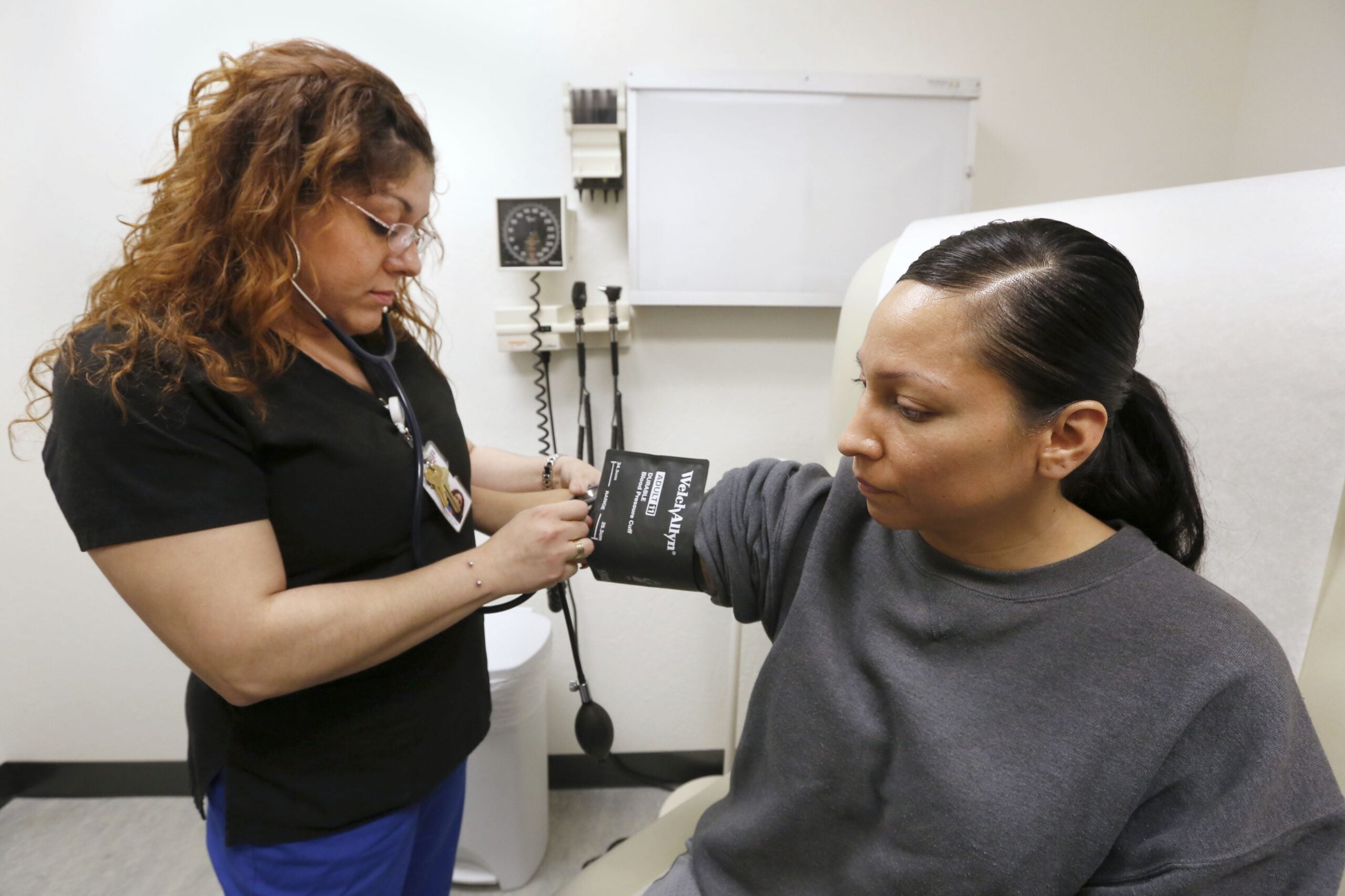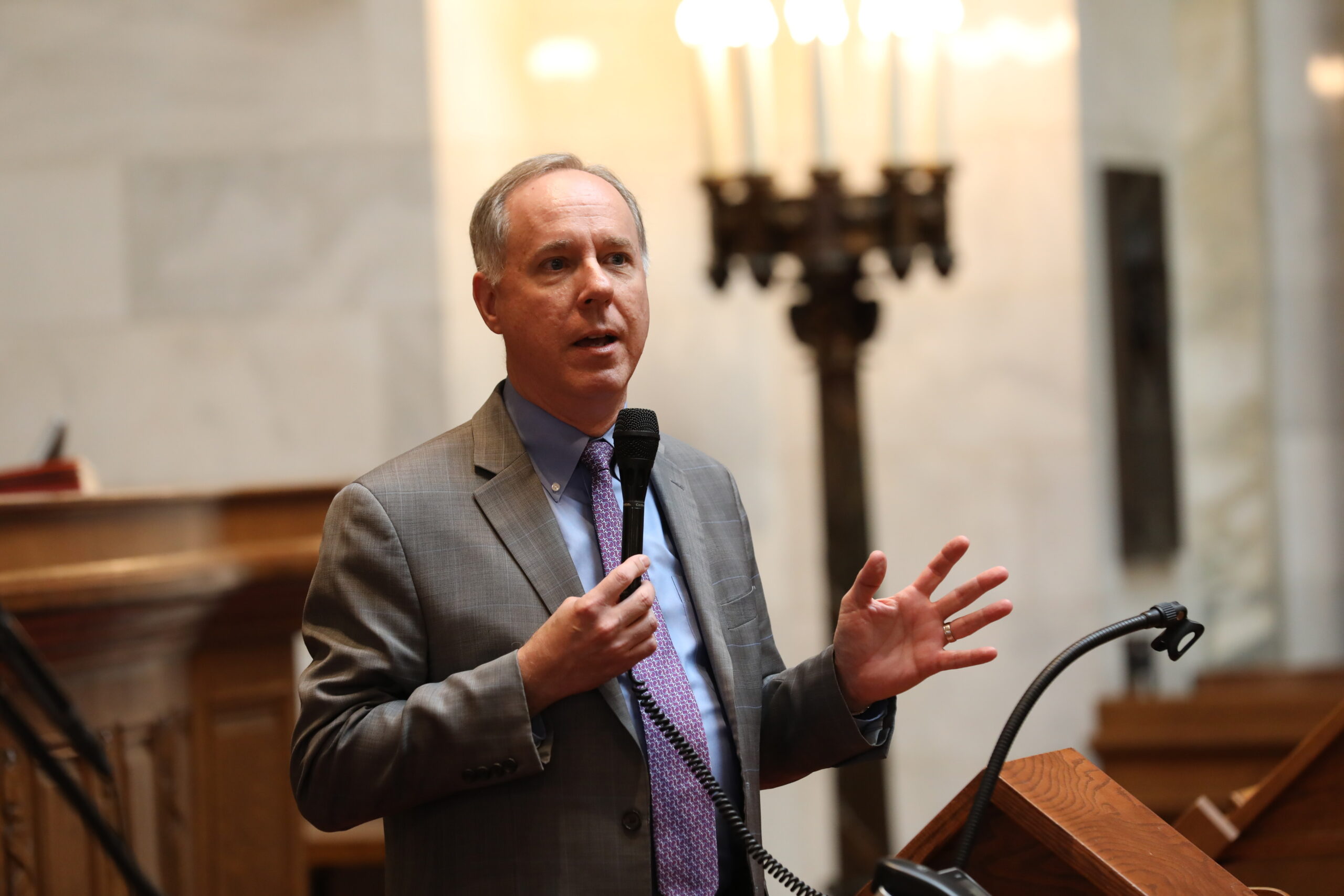The state budget committee voted unanimously Thursday to reject Gov. Scott Walker’s proposal to move about 250,000 state workers to a self-insurance system.
Under the proposed change, the state would pay employee medical bills directly through a third-party administrator instead of paying premiums to an insurance provider.
Lawmakers had previously signaled they planned to reject the move, arguing it’s too risky. Leaders of the finance committee reiterated that point Thursday.
Stay informed on the latest news
Sign up for WPR’s email newsletter.
“Our competitive marketplace is really a model for the nation, and we think with what’s happening nationally this is the wrong time for us to make major shifts in the marketplace,” said Sen. Alberta Darling, R-River Hills, co-chair of the budget committee.
The governor had linked $60 million in estimated savings to the proposed move to self-insurance. The budget committee identified $63.9 million in other savings.
Those changes include $22.7 million in negotiation savings, $25.8 million from the state insurance board’s reserve fund, and $15.4 million from increased usage of health plan tiers and plan design changes. They say they’ll achieve those by making changes to employee benefit plans and using money from the state insurance board’s reserve fund.
Committee co-chair Rep. John Nygren, R-Marinette, said those plan design changes will not result in state employees seeing premiums, co-pays or other expenses rise more than 10 percent in each of the 2018 and 2019 calendar years.
Pay Raises
The budget committee also voted to approve the governor’s proposal to increase state employee compensation by 2 percent on Sept. 30, 2018, and 2 percent on May 26, 2019. The pay plan would affect employees of Wisconsin Public Radio.
“Our faculty and staff work incredibly hard, and this increase recognizes that our institutions compete for talent at a national and international level,” said University of Wisconsin System President Ray Cross, in a prepared statement. “This pay plan represents the largest investment the state has made in UW employees in more than a decade.”
According to the non-partisan Legislative Fiscal Bureau, the last raise for state employees, a 1 percent bump, came in 2014-2015. The last 2 percent raise was in 2007-08.
Domestic Partner Benefits
State lawmakers on the budget committee also voted to eliminate domestic partner benefits for state employees.
Those benefits provide a variety of rights to couples, including the right to visit a partner in the hospital and power of attorney.
Rep. Dale Kooyenga, R-Brookfield, was among the 12 Republicans on the Legislature’s budget committee who voted for the change.
“This isn’t personal, this is just simply an equity issue and a fairness issue and the landscape as far as who marriage is available to has changed and that’s the intent here, trying to make things fair and not pick winners and losers or make a judgment call,” Kooyenga said.
Democrats on the budget committee voted against the proposal. They argued people should continue to have access to certain legal rights without getting married.
Wisconsin Public Radio, © Copyright 2024, Board of Regents of the University of Wisconsin System and Wisconsin Educational Communications Board.






